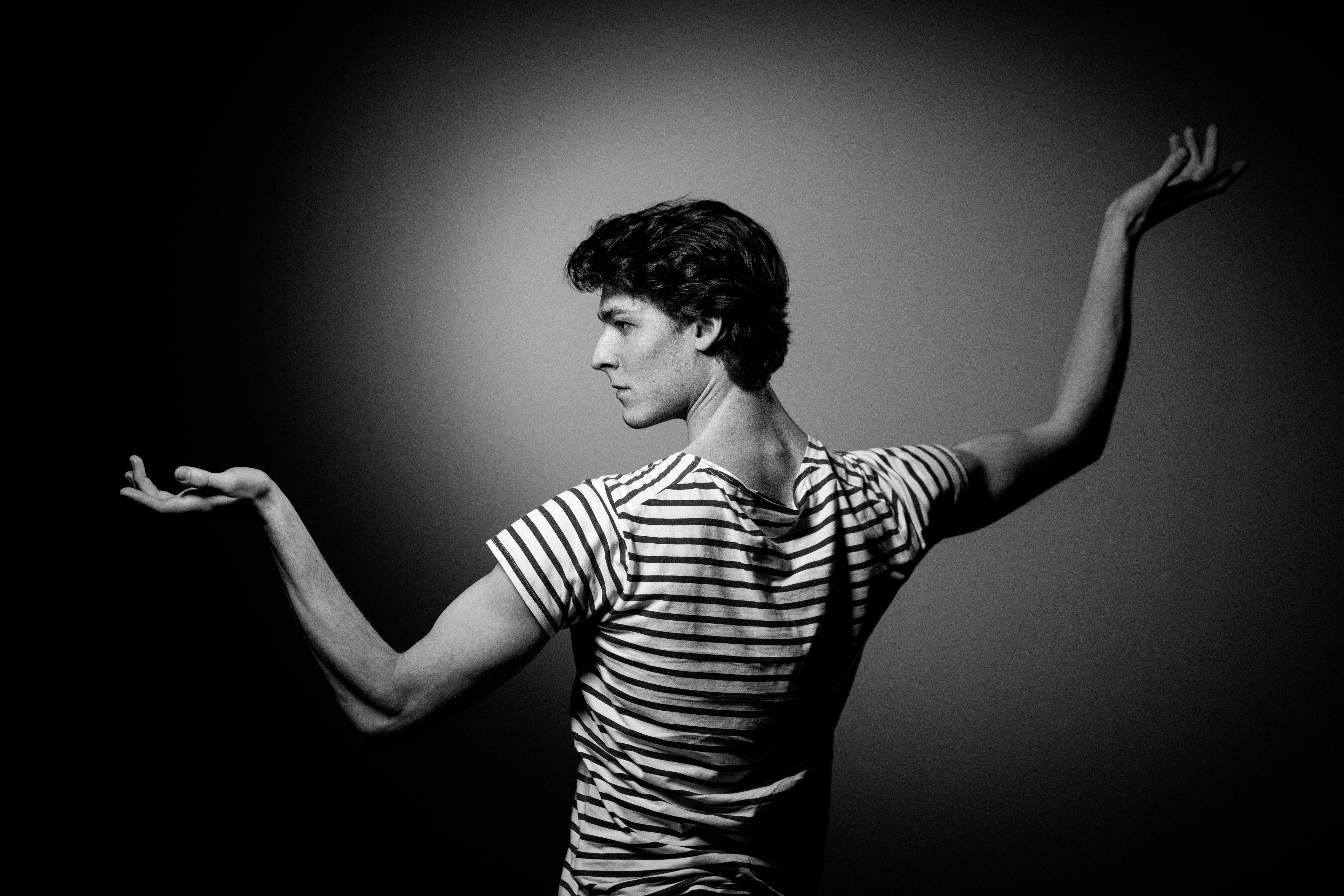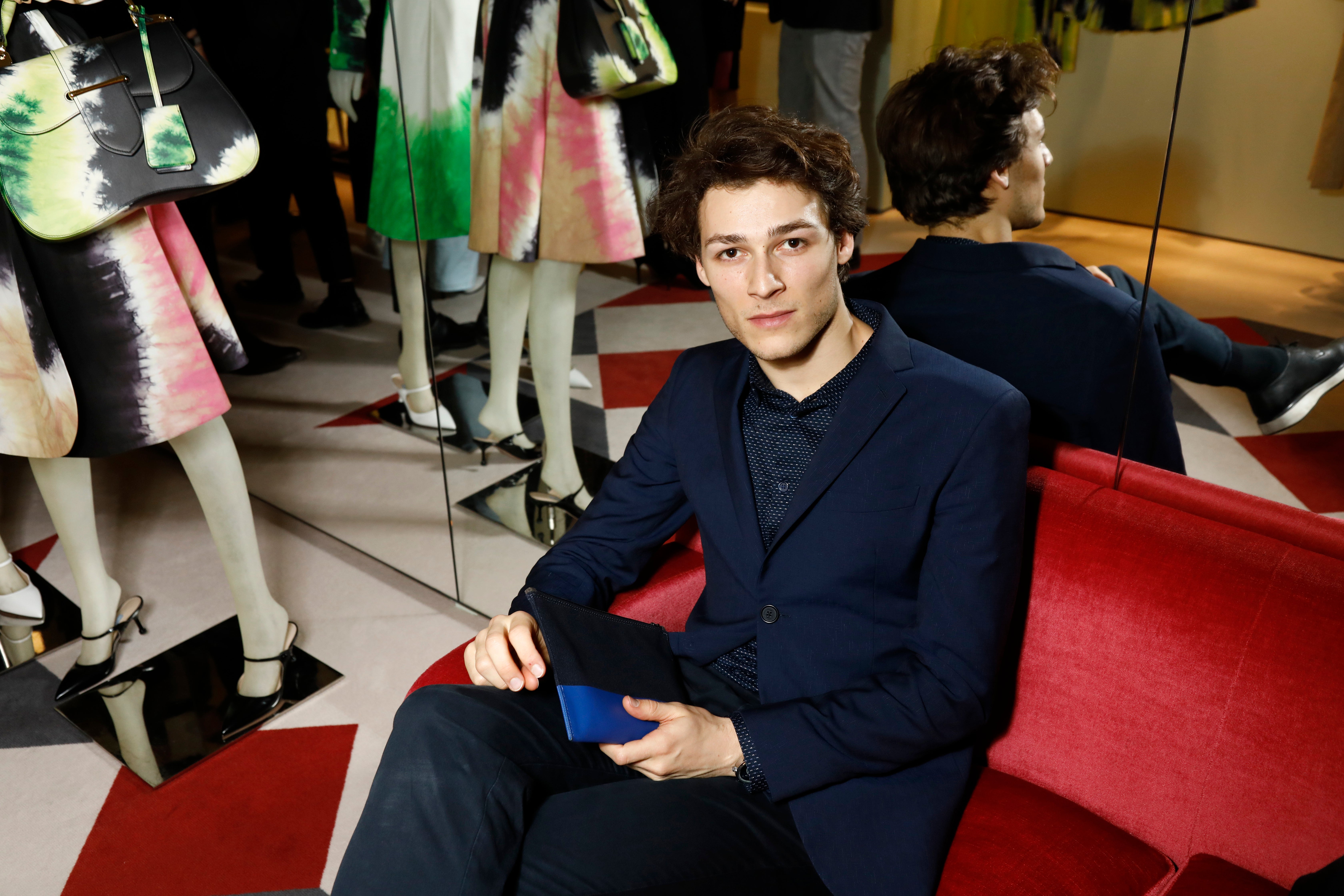A Paris Opera Ballet étoile on the costs of following his passion
Hugo Marchand reached the highest rank of étoile by the age of 23, and at 27 he’s already written his autobiography. From the outside his life looks untroubled, but it turns out he has plenty to talk about, writes Roslyn Sulcas

Hugo Marchand, probably the starriest of the Paris Opera Ballet’s stars, or étoiles, stares out, bare-chested and muscled, from the cover of his new memoir, Danser (Arthaud), published in France last month.
Marchand, 27, seems a little young to have written an autobiography. Although he has made a quick climb to the top – by 23 he was an étoile, the company’s highest rank – he still has a whole career still ahead of him. And from the outside, his life looks like an untroubled series of achievements, validated by critics and audiences, who love his lyricism, virtuosity, acting abilities and leading-man looks.
Why, then, a book now? Marchand asked the same question when an editor approached him three years ago. “I had a lot of doubts, but the editor told me she wanted to hear the voice of a young person talking about following their passion, and what the costs were of that,” he said in a video interview from his apartment in Paris.
Read More:
As it turns out, he had plenty to talk about. In Danser (the French verb “to dance”), Marchand (with the help of journalist Caroline de Bodinat) describes, often with poetic intensity, the gruelling, competitive world of the Paris Opera Ballet school and company, and lets the reader into its claustrophobic confines.
He also writes movingly of his own struggles with self-acceptance. At 6ft 3in, with a naturally muscular build, he felt too tall and too big for the fine-boned Paris Opera Ballet ideal, and his career has been permeated by self-doubt and visitations of stage fright. And he touches, although lightly, on the tricky politics of the past few years at the Paris Opera Ballet: Benjamin Millepied’s brief tenure as director, Aurelie Dupont’s current reign and an internal report in 2018 about the dancers’ dissatisfactions.
Since June, Marchand and other dancers in the company have been able to do daily classes and rehearse, although performances have been curtailed. Marchand has also worked on a project, a pas de deux with Hannah O’Neill (a Paris Opera Ballet colleague), for Gagosian Premieres — a series of filmed collaborations between visual artists and artists in other disciplines. The film, which will be released online Tuesday, is set among a series of huge Anselm Kiefer paintings now on view at the gallery’s Le Bourget site in Paris.
Kiefer, who was present for the filming, called the relationship between the dancers and the art “a lucky and wonderful intersection”. In a video interview, he said, “It was as if the dancers emerged from the paintings, writing fugitive lines in the air,” adding that the paintings “are fugitive too; they are never finished, still in action, and the dancers make that so clear.”
Marchand spoke about the Gagosian project, the Paris Opera Ballet’s recent report on diversity and an ambition to dance in New York. Here are edited excerpts from that conversation.
Q: What appealed to you about doing the Gagosian piece?
A: I have always wanted to work with other artists and bring other artistic disciplines into play. Hannah and I asked Florent Melac, a friend of ours in the corps de ballet, as we liked his choreography. He chose the music, Steve Reich’s “Duet.” I like the way it loops and matches Kiefer’s work, which uses recycled and repeating materials. We were lucky to meet Anselm Kiefer, and I was very touched and moved by the paintings.
Ballet is a matter of tastes; it’s not because one director liked you that the next one will. But Aurelie made me an étoile six months later, which changed my life
Q: Are there other projects or ambitions you want to pursue?
A: I have always wanted to explore another house, dance with other companies. I would love to come to New York and perform with New York City Ballet or American Ballet Theatre. I am very interested in the American ballet style, how quick and efficient it is, how well people move. But we can’t even cross the borders in Europe at the moment. Maybe one day!
Q: Benjamin Millepied encouraged and promoted you during his tenure. After he left, Aurelie Dupont came in and there seemed to be a lot of dissatisfaction in the company. How did you feel at the time?
A: When Benjamin arrived, it was a fresh wind. What was crazy was that these rules that hadn’t moved for years suddenly changed. We could dream about having roles even if we weren’t the “right” age or with the right rank. He gave me so much attention; I would have done anything for him as an artist. In the two years he was there, I went from understudy to soloist, and when Aurelie arrived, I was worried.
Q: Why? And what is your relationship like now?
A: Ballet is a matter of tastes; it’s not because one director liked you that the next one will. But Aurelie made me an étoile six months later, which changed my life.
She has ideas about a long-term career, and that can be frustrating when you want to dance particular roles. Sometimes she will think it’s too soon. But she has the experience of a long career; at the Paris Opera, you have to be a principal dancer for the long term because you are usually there until you retire at 42.
Q: An internal survey in 2018, which was leaked to the press, showed high levels of company discontent. In your book, you talk about this very neutrally. Did you identify with some of the issues that came up?
A: I was shocked and sad when the internal survey came out. Aurelie hadn’t been there long, and it was unfair to saddle her with long-term issues of harassment or bullying. The survey should have been there to help the institution grow and improve, but it had the opposite effect.

Q: What are your thoughts about the Opera’s recent commission of inquiry into racism, and its conclusions?
A: The report pointed out that change has to happen from early on; that we have to send the message, you are Black, Asian, mixed race, whatever, and you should come to the Paris Opera Ballet School if you have the ability. That message hasn’t been communicated until now, but the report means they will work on it. The company needs to look like French society, and in a few years, it will.
Q: In your book, you vividly describe the Paris Opera Ballet School training — the rankings, the competitiveness, the desperate desire to get into the company. Are you at all critical of the system?
A: Being a good ballet dancer isn’t about being good in the studio. It’s about being able to dance your best at the right moment, in performance. The system is violent, but it helps you to understand this very early. Of course, it is very stressful to face competition and exams at a very young age. But it gives you the weapons for that moment when you need them.
Read More:
Q: Is the annual competition for promotion, once you are in the company, a continuation of that idea?
A: When you get into the company, the annual competition plays an important role, because for the first year or so, you don’t dance at all, you’re lucky if you ever get onstage. The competition gives you a concrete goal and a reason to work and improve every day. There is some luck and chance involved; two minutes onstage determines your fate for the next year. But again, it’s all about dancing your best at the right moment.
And I do believe that ultimately people arrive where they need to. Ballet is about talent, a lot of work, the right body type — but also that you would die to perform onstage. That is my best talent: I love ballet so much, I could die for it.
© The New York Times
Join our commenting forum
Join thought-provoking conversations, follow other Independent readers and see their replies
Comments
Bookmark popover
Removed from bookmarks